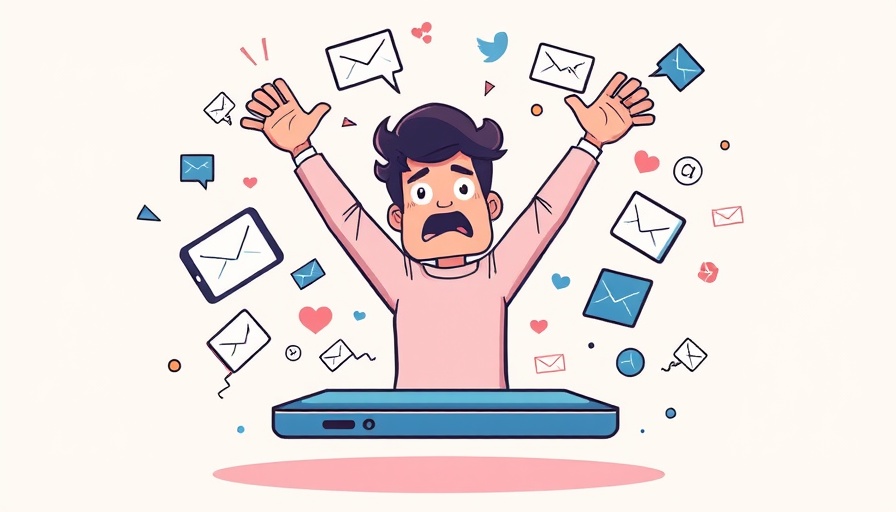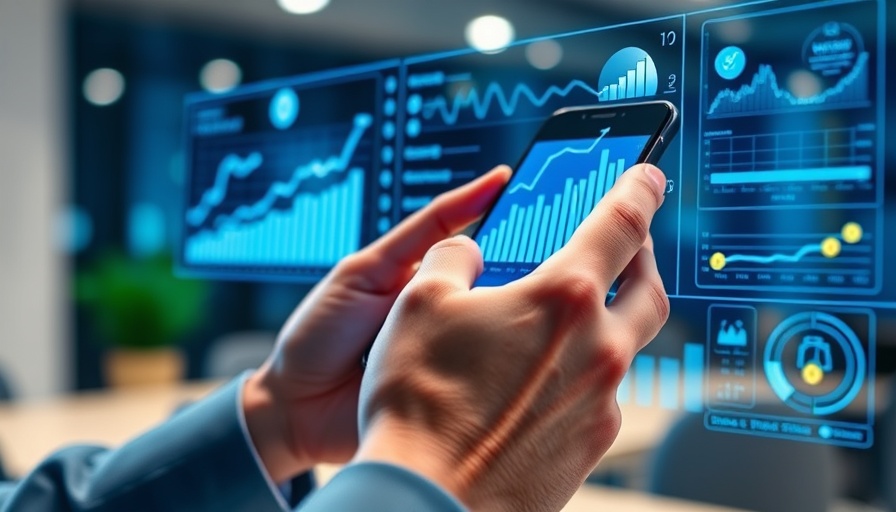
Why Unplugging from Screens Matters
In today's digital-driven society, it's easy to feel overwhelmed by the incessant presence of screens. Reports indicate that adults spend an average of six hours and 38 minutes each day glued to various digital devices. This screen time has become a significant aspect of our daily routine, often leading to physical and mental health challenges. By understanding the risks associated with prolonged screen use and embracing strategies to disconnect, we can foster a healthier digital lifestyle that still supports our careers.
Determine Your Screen Time Habits
Before diving into a digital detox, reflecting on our screen time habits is essential. Tracking your daily usage across devices can highlight areas for improvement. Many are surprised to find out their actual screen time through apps or device settings. Once you're aware of your patterns, you can identify when and where to make gradual reductions without sacrificing productivity.
Small Adjustments Yield Big Results
An effective way to lower screen time is by incorporating small lifestyle changes. For instance, setting boundaries with digital devices can significantly reduce hours spent on screens. Strategies like instituting "no-screen" times during meals or before bedtime encourage a more mindful approach to device use. Taking regular breaks—like the 20-20-20 rule, where you blink at something 20 feet away for 20 seconds every 20 minutes—can also remedy eye fatigue while enhancing productivity.
The Anxiety of Disconnect: Myths and Realities
Worries about disconnecting often stem from a fear of missing out (FOMO). Many professionals feel that being offline could jeopardize their careers. However, research shows that occasional unplugging can enhance creativity and resilience by giving the brain a much-needed break. Counter to popular belief, taking time away from screens can lead to improved performance and innovative thinking, reflecting positively in professional settings.
Building Digital Resilience for Career Success
To navigate the fine line between screen use and career advancement, focus on building digital resilience. This includes setting goals for how much time you want to spend online in productive tasks versus passive consumption. Engaging in hobbies or outdoor activities can provide a refreshing distraction, allowing for growth in personal interests that can translate into new skills professionally.
Incorporate Mindfulness into Your Digital Routine
Practicing mindfulness is key when managing screen time. By approaching our digital interactions with intention, we can engage fully without excessive time spent online. Techniques such as mindful breathing before entering workspaces, or journaling about experiences instead of scrolling through social feeds, offer alternative engagement methods that nourish both mental health and productivity.
Healthy digital habits don’t mean sacrificing career success. By implementing these strategies, individuals can create boundaries that lead to a more sustainable screen time lifestyle. But remember, while the goal is to reduce screen hours, it’s equally important to recognize how to use digital time wisely. Prioritizing quality over quantity will ensure both personal and professional flourishing.
 Add Row
Add Row  Add
Add 




Write A Comment